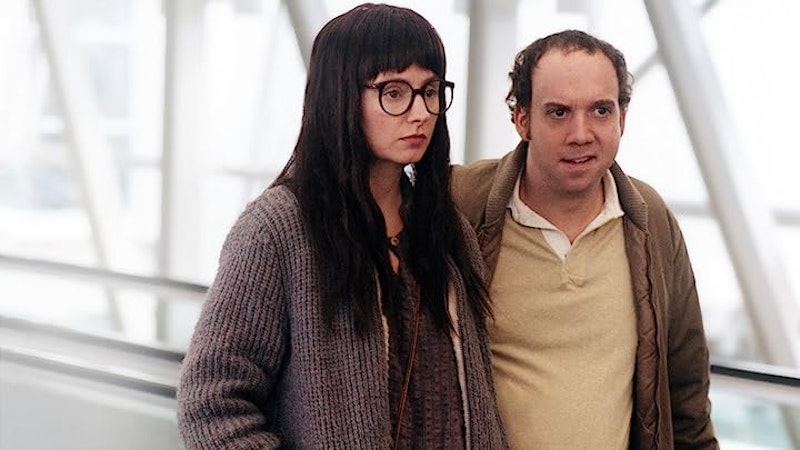On a day that I didn’t get sick—July 12—I finally watched American Splendor, the Harvey Pekar movie I missed in the fall of 2003. It wasn’t coronavirus this time, but some summer cold left me supine looking for breezy documentaries. Rock Hudson: All That Heaven Allowed is a fine new HBO (or Max?) documentary about the famously closeted star that utilizes only archival clips and voice-over in its first half, before moving to a handful of on-camera interviews. No surprises here for anyone who knows Hudson’s career and the broad strokes of his private life. The difference between All That Heaven Allowed and the dozens of cable TV and network news stories about Hudson since his death in 1985 is the indictment of Ronald and Nancy Reagan, former friends who refused to intervene and get Hudson admitted to a better hospital in Paris. Reagan hadn’t even mentioned “AIDS” yet. It wouldn’t be proper was the gist, and Hudson told a friend, “What a way to end a life.”
The only salacious and ethically questionable bit in All That Heaven Allowed is a tape of a phone conversation where Hudson recommends a nice boy to one of his friends and mentions his “equipment is… oh, about… nine inches. He’s real fine in that department.” Other documentaries and specials on Hudson have, in addition to all of the books on him I haven’t read, confirm his voracious sexual appetites. Hudson’s conservative politics are glazed over here, unlike in past coverage, and he’d obviously be appalled by the tape’s inclusion in a documentary on his life. He’s not committing a crime, but it’s juicy tape. I was surprised the filmmakers would even consider including something like that. Hudson was a very private person, why dishonor that?
On a completely different tip, I fell into a Harvey Pekar wormhole on Tuesday, and without knowing it, I watched American Splendor on the 13th anniversary of his death (by accidental overdose of Prozac and Wellbutrin). I wasn’t reading American Splendor, but watching all of his appearances on Late Night with David Letterman in the late-1980s and early-1990s. I don’t think I ever saw these clips growing up, just a more relaxed, even sedated, Pekar promoting the movie based on his life and work in 2003. Like Duplex, another movie I missed but remember from the fall of 2003, fell flat for me on July 12, 2023, but I have to keep chipping away at every American movie released in the first decade of the 21st century. Hope Davis is astonishing as Joyce Brabner, Pekar’s wife and creative partner. Brabner and Pekar are in my pantheon of ideal couples, whose life and work are one, whose worlds are themselves: John and Yoko, Lou Reed and Laurie Anderson, Jean-Luc Godard and Anne Marie-Miéville, Ira Kaplan and Georgia Hubley.
The movie’s only flaw isn’t entirely its fault: NBC and David Letterman refused to clear footage of Pekar’s November 1987 and January 1988 appearances where he berated Letterman for being a “shill” for General Electric, as a nasty Letterman tried to interrupt and cut Pekar off. The scene is shot from behind in the movie: Giamatti is okay as Pekar, but the guy they have for Letterman, even from behind, is way off. Giamatti can basically pull Pekar off, but he’s just a couple steps up from Jason Segal as David Foster Wallace in The End of the Road.
Pekar called himself “a strident leftist” on one of those appearances; Letterman said he “could guess at least half of that.” No doubt he’d be picketing if he were alive today, and probably louder and more entertaining than anyone else.
—Follow Nicky Smith on Twitter: @nickyotissmith

